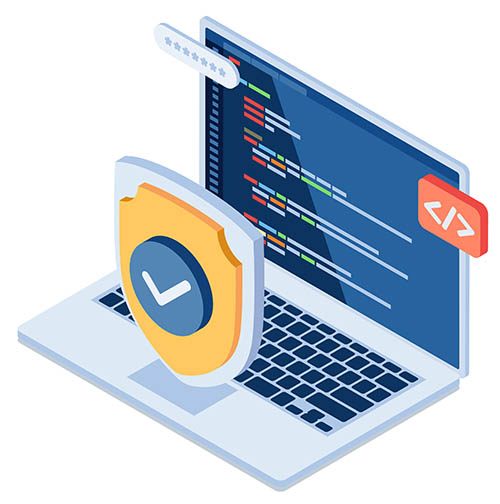
Telemedicine visits, which take place virtually using an internet connection, have many advantages. They allow people to access care without spending time or money travelling to a provider’s office, typically have shorter wait times, and are often less expensive.
However, telemedicine requires your personal health information to be shared and stored remotely. How can you be sure your data will be secure?
Telehealth technology is generally built using secure technology that helps ensure privacy.
Strategies such as data encryption translate information into a jumbled form of text that can only be understood if you use secure tools that can decode it. This prevents other people from accessing and reading your personal data.
Telemedicine services may also use tools like multifactor authentication, in which a patient needs to provide multiple pieces of evidence to prove their identity. This helps ensure that you are the only one who can log into an account and view your stored information. It also helps your doctor determine that you are in fact who you say you are.
In South Africa, laws such as the Electronic Communications and Transactions Act help make telemedicine platforms more secure. Apps, software, and other tools that provide telemedicine services within your country need to make sure that they collect data and send communications in a secure way that protects patient privacy.
Other countries have also developed strict laws that require health-related apps or software to be secure. For example, the United States has created the Health Insurance Portability and Accountability Act (HIPAA) to protect patient privacy. Any telemedicine tool that meets HIPAA requirements is sure to be secure.
Organizations like the World Health Organization (WHO) are also working to develop strategies and guidelines to ensure that digital health tools are private and protect the safety of patients who use these platforms.
Even though your provider will use a secure connection during your telemedicine visit, your conversation may not be private if someone overhears you. Your health care provider will contact you from their office or another isolated location, but you should take care to make sure that your end of the conversation is also separate from others.
Before your telemedicine visit, find a location where other people can’t hear you. This will help ensure you can be open and honest with your doctor without worrying about what other people will think. You may want to go into a separate room in your home and shut the door so that others won’t come in. If you don’t have a private space in your home, see if a loved one has an isolated space in their house that you can use. Alternatively, participate in a telemedicine visit while sitting in your car, or go to an outdoor space such as a park where you can take the call while keeping your distance from other people.
You can also help keep your visits private by keeping your devices and internet connections secure. Use antivirus software on the device you will be using for your appointment. During your call, avoid using shared devices and public Wi-Fi. Use a personal device or a device borrowed from a family member and a private internet connection with a password for your health care visits.
If you’re concerned about privacy, ask your provider for more information about the security of the platform and inquire as to how your personal data will be used. Look for platforms that take privacy seriously and provide safety precautions.